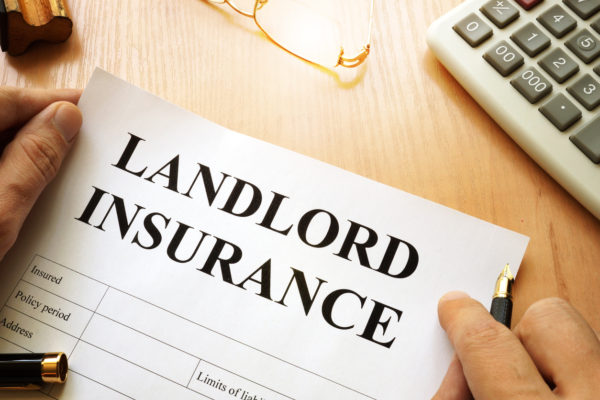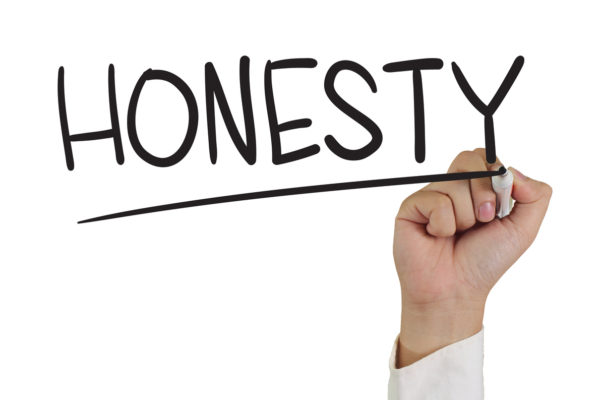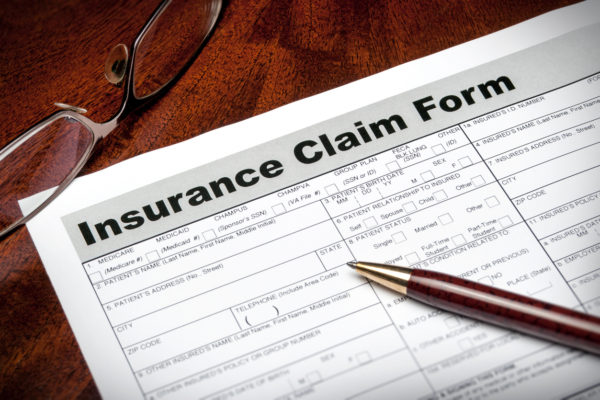As a property owner, you naturally have homeowner’s insurance, however, if you have one or more rental properties, you will want to have a landlord insurance policy, also known as rental property insurance or rental dwelling insurance. Why is that? Well, bad things happen, and you’d like to have some peace of mind, and keep your stuff, right?
During my tenure with Management One, I have spoken to several owners that do not have the proper insurance in place to cover their property. The topic of insurance is near and dear to the company, and it’s something that we talk about several times a year to our current clients. It never fails that when you really need it is when you find out you don’t have the correct insurance in place.
Let’s break it down…

Rental Property Insurance is Not Renter’s Insurance
Rental property insurance is Landlord Insurance, plain and simple. It covers the structure and more. Renter’s insurance is for renters only, and it protects their belongings on the property in a loss event, and in some cases, covers the renter as far a liability should they have an accident, such as burning down the property.
Landlord Insurance vs Homeowner’s insurance
When do I need Rental Property Insurance?
You ought to have landlord insurance when your property is rented out for long periods of time, such as 6 months, a year, or longer. In other words, if the home is lived in and it is not your primary residence, you should have rental property insurance, which for the sake of brevity, I will refer to as landlord insurance from this point forward.
However, when renting your dwelling out for a day, week, or month, at which point you will return, homeowner’s insurance is really all you will need.
A lot of folks rent out their homes long-term and stick only with homeowner’s insurance. This is a mistake, don’t do it!

Don’t ever lie to your insurance company
An insurance company is not any different than any other business, be it an oil company, or a mom and pop convenience store. They exist to turn a profit, that is, they have money left over after paying all their expenses.
You pay a yearly cost, or premium, to the insurance company for your coverage, and at the end of the year, the insurance company expects to have more money from your policy than it paid out.
It is a business, plain and simple, never mind all the advertisements which are designed to blur the lines between a for-profit business and some entity that is looking out for you. An insurance company is not some Sugar Daddy which exists to give you money.
Having said that, do understand that all insurance companies will look for reasons to NOT pay a claim submitted to them.

Honesty is the best Policy
If you are not living in the home you own, yet it states on your policy that the dwelling is owner-occupied, insurance companies potentially have legal grounds to deny your claim.
House burns down, denied.
Water damage denied.
Renter goes into eviction, months pass, lots of lost income? Denied no matter as you only have homeowner’s insurance.
Landlord insurance covers that.

Landlord Insurance Policy
This sort of policy costs about 25% more than a homeowner policy but has additional coverage. These coverages make the premium cost climb, as does the fact that the home is not owner-occupied.
Most policies cover the following, but each policy and insurance company are different, so be sure to verify your coverage with your carrier!
- Fire
- Theft
- Vandalism (do make sure this is covered)
- Most weather-related events
- Liability
- In some cases, identity theft
Also, you will want to make sure you have Rest Loss coverage. Should you face an eviction, especially a contested eviction, you could be months with no rent coming in, and I can guarantee you the bank will quickly lose patience should you stop paying them. They will not wait around, and you could lose that house! I have seen it happen many times, both as an insurance inspector and as a valuation inspector.

Back to Telling Insurance Companies the truth
Back when I did insurance inspections, one of the many tasks was trying to determine if a given dwelling was owner-occupied or not. This is much easier than you may imagine.
Most underwriters will send the owner’s information, along with any known tenant, provided that is on the record. However, many cases came in on the inspection order with the owner’s name in both fields, an indicator that the owner had a homeowner’s insurance policy only, lived there or had renters in there without letting the insurance company know this.
Figuring it out
On-site, the first determining factor was seeing how the front yard looks, then the structure itself. Renters will rarely keep the front of a house looking as good as an owner; it’s just a fact of life.
Next is traveling to the front door, ringing the bell, and/or knocking. If someone answered, I’d introduce myself and ask for the owner by name. Most of the time, if at a rental, the renter would hee and haw for a second or two, then explain that they were renting, and ask what they could help me with.
If a dwelling was suspected of being a rental (based on many observations), the suspicion would be noted for follow-up by the underwriter.
By the way, it was always very easy to spot if the person at the door was being deceptive, that is if one could read body language.
Who to use for your homeowners and/or landlord insurance?
In that there are a lot of considerations here, a good many variables, such as cost, coverage, etc., I cannot tell you whom to use. However, I can tell you, via my observations, what companies I preferred doing inspections for, and why. You might be surprised. Best to worst.
- USAA
- Allstate
- California Casualty
- Travelers
- State Farm
- Safeco
USAA
Of the hundreds of homes I checked for USAA, maybe only 2 or 3 were in overall poor conditions. Nor did I witness very many hazards, compared to properties covered by other carriers. Only at one house did I find to be clearly inhabited by an undocumented renter. Coincidentally, this was one of very few USAA cases where I found significant problems with the home.

Allstate
A close second behind USAA. Very seldom did I note problem properties. I think these two, being at the top, had something to do with having mature adults owning the properties, folks savvy at keeping their investments in good shape, but for different reasons. USAA due to the high number of the current and former military; Allstate owing to a higher number of people of means insuring with them.
Allstate also was extraordinarily concerned about exposure to overgrown brush.
California Casualty
I only did a few cases with these folks, and they were all “High Value” inspections. That means the homes were well in excess of $500,000 in value. These inspections mean also determining wood species used indoors as well as items such as cabinets, evaluating sheer walls and the like. Very detailed information asked for and returned.
Travelers
These were fairly standard inspections, and I did not get many. I do recall they had some different terminology, such as “Actionable” items rather than items which were “Major concerns.”
State Farm
These folks would rank much higher except for the fact that of all the cases I did for them (a couple hundred), they never once asked for a diagram confirming the square footage of any dwelling. “What? That so minor a thing that, that…”
I would agree with that reasoning, except for the fact that perhaps 15+% of all dwellings I inspected had unauthorized (unreported, and likely no permits pulled for) additions. In other words, the square footage seen on-site did not match the tax records.
See, if you are rebuilding a house stick by stick, brick by brick, it cannot be made whole if the insurance company has a replacement value far less than what is actually represented in the original physical structure.
Safeco
These folks must have the best prices, at least that’s my guess. It seemed that more frugal (read: penny-pinching) property owners used them for their rentals. And it seemed as if those who sought to minimize their insurance cost were far more likely to minimize their upkeep cost. When I received a Safeco case, which was far and away the most prevalent of my caseload, and it showed as renter-occupied if was a very fair bet that my day just got a lot longer.
I would find missing and torn screens. I would find broken windows, wood rot, aggressive dogs, improperly installed rain gutters, bad rooftops, overgrown yards, unfenced pools, etc.
These conditions must be documented, and that takes time.

My advice?
Go with good insurance if you’re going to own a rental property. Get landlord insurance with vandalism, fire, and loss of rent as part of it. Use your insurance company when needed.
Click here to see a quick breakdown of what you should have.
What does that last mean?
A recent example is a drunk driver, uninsured, rammed another vehicle, possibly also uninsured, causing the second car to careen through the back-yard block wall of a property we manage.
The property owner was unsure as to what to do. I advised getting him in touch with his insurance carrier right away. He was reluctant to do so because he feared his rates would go up.
I asked, “what if these vehicles hit his car instead of his wall, what would you do then?” “I’d call my insurance.”
Bingo.
I told him to put his agent to work right now. After all, his fence didn’t chase the car down and hit it, and he’s been paying decades of premiums. I said, “it’s time to put them to work for him, let their legal team get on it.”
Again, insurance companies hate paying claims, so let’s first see if they can leverage the situation in the property owner’s favor by going after the drivers. And if not, there may be a claim.

Another example of why you need landlord insurance
I knew this guy years ago, we’ll call him Dave, who was always on the lookout for a financial score. Dave was a renter of the worst kind. Every house he rented, he got evicted from, costing owners thousands of dollars in lost rents.
One day, his son was riding his bicycle up the cracked driveway and took a spill. The stink he made, the threats to the property owner, it was all quite overblown. I had seen the driveway, the cracks on it were what an insurance person would call a “Minor Concern.” This means that they were less than three inches in raised area, and although it may result in an insurance claim, the likely hood was low, and the award, if any, would be small. In other words, it was a minor risk. The insurance company took hold of the issue and resolved it without the huge liability claim Dave was hoping for. None-the-less, said the owner had landlord insurance.

We can help
As I mentioned earlier, educating our landlords about having the proper landlord insurance in place is very important to us. Over the last 31 years, we have talked to hundreds of owners that have found themselves in a position of needing the benefits of insurance.
Unfortunately, they did not take our advice to heart and found themselves with lack of coverage or no coverage at all. So, stop what you are doing now and call your insurance agent to make sure you are protected.
We also work closely with an insurance agent that can help guide you in making sure you are fully covered and find don’t find yourself needing insurance and not having it. Additionally, we require all residents to carry renter’s insurance!






.png)




 Resize.jpg)












